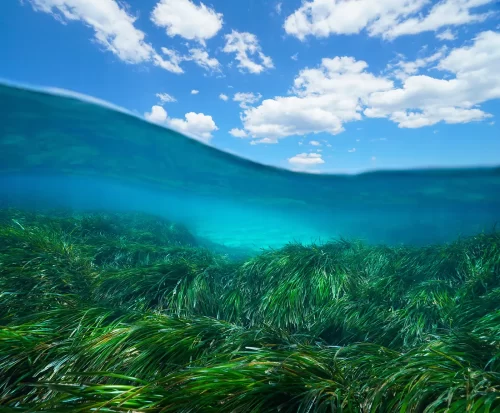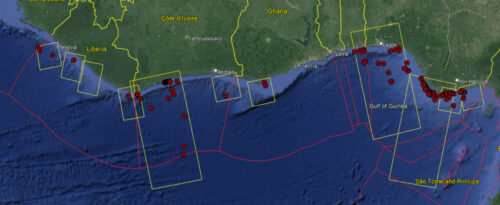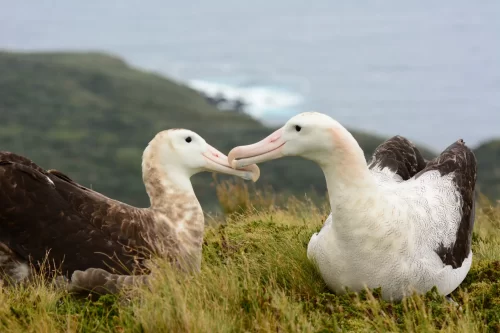Once again, Chile shows it is serious about ocean protection. Putting its fishing vessel tracking data on Global Fishing Watch’s public platform will help to build more transparent and sustainable fisheries

The May 2019 United Nations report warning of unprecedented rates of extinction of marine life is a wake-up call for the planet. The biggest ever assessment of animal and plant species estimated that 66% of the marine environment has been significantly altered by human actions, almost 33% of reef-forming corals and more than a third of all marine mammals are threatened.
Add to this the recent revelation that plastic has been detected in the ocean’s deepest abyss, and the grave assessments on the impacts of climate change in September’s IPCC Ocean and Cryosphere report, and it has never been more clear: the global ocean is in peril and nations around the world must show bold leadership for its urgent protection. Chile is one of those nations.
The Chilean government has created marine protected areas covering almost 1.5 million km2, or 40% of Chile’s waters, making it one of the few countries to have exceeded the 30% target for ocean protection recommended by scientists as a means to shore up ocean health in the face of multiple threats. Chile is one of eleven countries in Latin America and the Caribbean that have created a network to combat illegal, unreported and unregulated (IUU) fishing, which threatens the food security of millions. As one of the founding Parties and Signatories of the UN’s Port State Measures Agreement (PSMA) to combat illegal fishing, Chile also hosted the 2019 PSMA Meeting of the Parties which aims to ensure effective implementation of the Agreement. The Chilean government is also continuing to push an Asia-Pacific Economic Cooperation (APEC) Roadmap on Combatting IUU Fishing in order to promote further action to address this critical threat to our global ocean.
Now, Chile has taken a further step to affirm its commitment to protecting and restoring ocean health. Chile has become one of a small but growing number of countries around the world to make its fishing vessel tracking data publicly available, following legislation passed last year. As of today, that data is published through the Global Fishing Watch (GFW) map, which tracks the movements of commercial fishing vessels in near real-time.
Drag the slider right to view only fishing activity from Automatic Identification System (AIS) data (in blue) around Chile and southern South America. Drag the slider left to reveal fishing activity from Chile’s Vessel Monitoring System (VMS) data (in pink) overlaid with AIS data, together making a more complete picture of fishing activity in the region. Boundary lines on the map represent Exclusive Economic Zones (EEZs) and Marine Protected Areas (MPAs).
By publishing its vessel tracking data to the online platform, Chile’s fishing fleet, comprising more than 800 artisanal and industrial fishing vessels, will be viewable by anyone accessing GFW’s public map, including governments, fishery managers, local communities and non-profit organizations. The Chilean government’s fisheries and aquaculture regulator, SERNAPESCA, is also using our map to visualize and track vessel positions for their fleet, including more than 900 vessels involved in aquaculture.
Public sharing of vessel tracking data brings a huge advantage to Chile, which has an especially challenging Exclusive Economic Zone (EEZ) to patrol. Public sharing will help improve surveillance of Chile’s extensive offshore marine protected areas including Moto Motiru Hiva/Sala y Gómez, Rapa Nui/Easter Island, Juan Fernández Islands, and the Nazca-Desventuradas Marine Park. Unauthorized vessels and those with a history of non-compliance, can now be identified more easily and prioritized for inspections, while vessels that turn off tracking devices can be held accountable when they come into port.
This move is the product of Chile’s close cooperation with the conservation NGO Oceana, one of the founders of Global Fishing Watch, to build more robust management measures and increase the transparency of commercial fishing. It is a powerful example of how governments can increasingly work with civil society and the private sector to improve sustainability in all our activities.
Achieving well-managed, sustainable fisheries is vitally important for Chile. The country relies heavily on fisheries, and a healthy marine environment, for economic growth and local livelihoods. With over 4,000 kms (2,500 miles) of shoreline, and some of the richest fishing grounds in the world off its coast, Chile is ranked globally as the eighth largest fishing nation, representing 4% of the world’s total production. The fisheries sector supports 130,000 direct jobs generating more than US$6 billion in export revenues.
Yet, reported fish landings in Chile have declined in the past 25 years, with a number of fisheries now considered fully exploited. In addition, warming and acidifying waters under climate change could bring significant impacts on fisheries productivity.
Ensuring fishing operations in Chilean waters comply with regulations, and are conducted in a sustainable manner, relies on cost-effective and efficient monitoring. Enforcing the marine protected areas that Chile has created, increasingly seen as an essential part of the survival toolkit for our ocean, likewise relies on an effective and affordable surveillance system. Combining open data, traditional monitoring and emerging technology are key to achieving the efficiency and cost-effectiveness.
Given the multiple threats to our ocean, all nations have an obligation to ensure that overfishing and illegal fishing do not undermine our future resilience. That is why making Chile’s vessel data public matters, and we urge more countries to do the same. We must present a united front against these and all threats to a healthy functioning ocean. We applaud Chile’s leadership and hope they will continue to support national, regional and international policies, and foster the necessary cooperation, to help achieve this vital goal.


